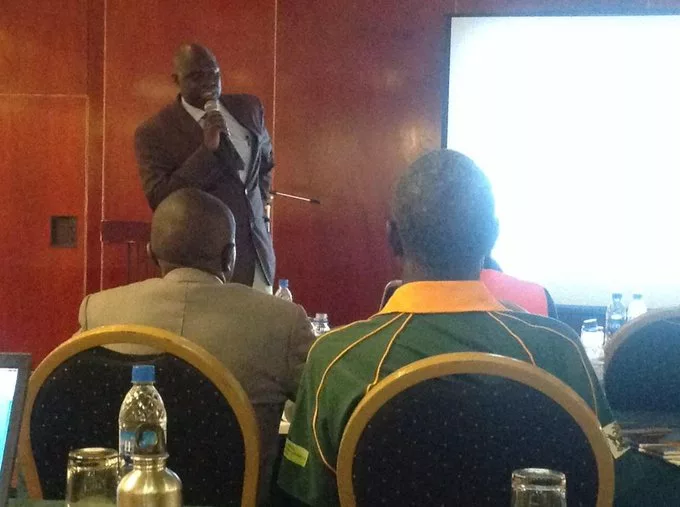|
Getting your Trinity Audio player ready...
|
Sherpard Zvigadza, the Coordinator of the Southern Africa Region Climate Action Network (SARCAN) is urging the Southern African Community Development (SADC) Heads of State to demand wealthy and polluter nations to pay up their historic and climate debts.
He was speaking to Spiked Online Media on the sidelines of the 4th Regional Dialogue for Non-State Actors (NSAs) on the SADC Regional Indicative Strategic Development Plan (RISDP) 2020-2030, held in Harare this week.
At the same time, he urged international financiers to give separate climate finance to Southern Africa and ensure that it be new, additional, fair, fast, and grant-based.
Below, we share his sentiments:
The impacts of the climate crisis are being felt acutely in southern Africa, where vulnerable communities are bearing the brunt of escalating environmental catastrophes. From devastating droughts and flash floods to the encroachment of the sea on coastal regions, the people of the southern African region are witnessing their homes, livelihoods, and futures being systematically eroded by a crisis, not of their making.
The harsh reality is that the countries of the Global North, whose reckless industrialization and fossil fuel-driven development has fuelled the climate emergency, owe significant climate obligations to the nations of southern Africa. Studies have shown that even if the world takes urgent action to limit warming to 1.5°C, the costs of past and future climate impacts on the Global South will total a staggering $192 trillion by 2050. This translates to an annual climate responsibility of $5 trillion that wealthy nations must pay to the developing world, southern African countries included.
This obligation is not negotiable; it is moral and ethical accountability that the Global North must urgently fulfill. The communities of southern Africa, who have contributed negligibly to global emissions, are now facing the devastating consequences of a crisis not of their making. Droughts have decimated crops, flash floods have destroyed vital infrastructure, and rising seas have swallowed up precious coastlines – all while the nations responsible for this chaos continue to evade their responsibilities. Just recently, the Southern African block launched a global humanitarian appeal to the tune of USD 5.5 billion due to the Elnino-induced drought that has affected more than 60 million people, compromising food security in most of the region.
It is time for a reckoning. A considerable share of $5 trillion in annual climate finance must be provided to southern African nations, not as loans that deepen their vulnerability, but as grants that empower them to build resilience, transition to renewable energy, and protect their communities from the ravages of the climate crisis. This funding should not be viewed as mere “aid,” but as restitution for the harm inflicted by the wealthiest nations.
The upcoming SADC Summit, in Harare, Zimbabwe from 17th to 18th August and the COP29 climate negotiations in Baku, Azerbaijan provide a crucial opportunity for southern African leaders to demand that this climate obligation be paid. Wealthy nations can no longer hide behind empty promises and half-measures; they must step up and fulfill their moral obligations to the Global South. If they fail to do so, the consequences will be catastrophic, not only for the people of southern Africa but for the entire planet. This is a Global warning.
The time for action is now. The resources exist, as evidenced by the trillions mobilized for pandemic relief and military expenditures. It is time for these same financial commitments to be made towards addressing the existential threat of climate change. The people of southern Africa have waited long enough – it is time for the Global North to pay up and chart a path towards a more just and sustainable future for all.






